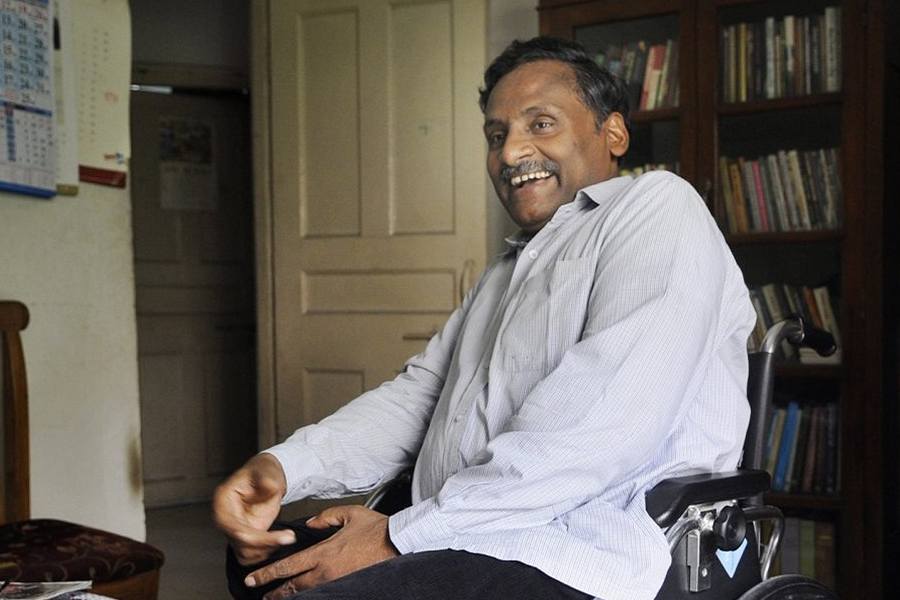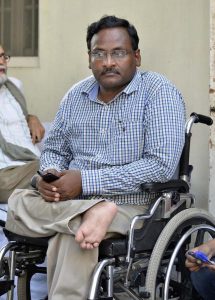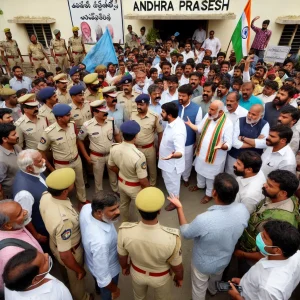
Former Delhi University professor and human rights activist Dr. G.N. Saibaba, who passed away at the age of 57 in Hyderabad on Saturday, spoke just months before his death about the extreme difficulties he faced during his decade-long imprisonment. During a “Meet the Press” event earlier this year, Dr. Saibaba recalled the harsh conditions he endured, specifically highlighting his time in the (Anda Cell) (solitary confinement) at a Maharashtra prison. The Anda Cell, notorious for its inhumane treatment, deprived him of basic necessities and worsened his already fragile health.
Wheelchair-bound due to a severe disability, Dr. Saibaba’s time in solitary confinement has raised serious concerns among his followers and supporters about the Indian government’s treatment of political prisoners, especially those with health vulnerabilities. Despite being imprisoned under the draconian Unlawful Activities (Prevention) Act (UAPA), Dr. Saibaba maintained his innocence and fought for justice, speaking out against what his supporters have called a systematic crackdown on dissent under the BJP-led government. His arrest in 2014, based on alleged Maoist links, was widely seen as a move to silence a vocal critic of the government’s policies on tribal rights and human rights.

Dr. Saibaba’s experience in the Anda Cell is emblematic of the broader mistreatment of political prisoners in India today. He described the unbearable conditions, the complete isolation, and the lack of adequate medical care, which severely affected his health during his incarceration. His statements during the “Meet the Press” event underscored the negligence and cruelty inflicted upon him by the authorities.
Despite his eventual acquittal by the Nagpur Bench of the Bombay High Court in March 2024, after spending nearly a decade in jail, Dr. Saibaba continued to fight another legal battle for his reinstatement at Ram Lal Anand (RLA) College, where he had been teaching English since 2003. The Delhi University administration, backed by the government, refused to reinstate him despite his acquittal, illustrating his continued resistance even after being cleared of all charges.

Dr. Saibaba’s tragic death, following post-operative complications after gallbladder surgery, has become a focal point for criticism of the BJP government’s handling of political prisoners and human rights defenders. His prolonged imprisonment, solitary confinement, and the state’s indifference to his health reflect what his followers see as a larger pattern of silencing dissent through punitive means.
Dr. Saibaba’s death not only raises profound concerns about his treatment in prison but also compels his followers to question the broader state of democracy in India. His passing is more than a personal tragedy; it serves as a powerful indictment of the government’s oppressive tactics and underscores the urgent need for introspection on how dissenting voices are handled in the country.
Today, as part of his final journey, Dr. G.N. Saibaba’s body will be donated for medical research, reflecting his commitment to a cause that transcends his own life.




